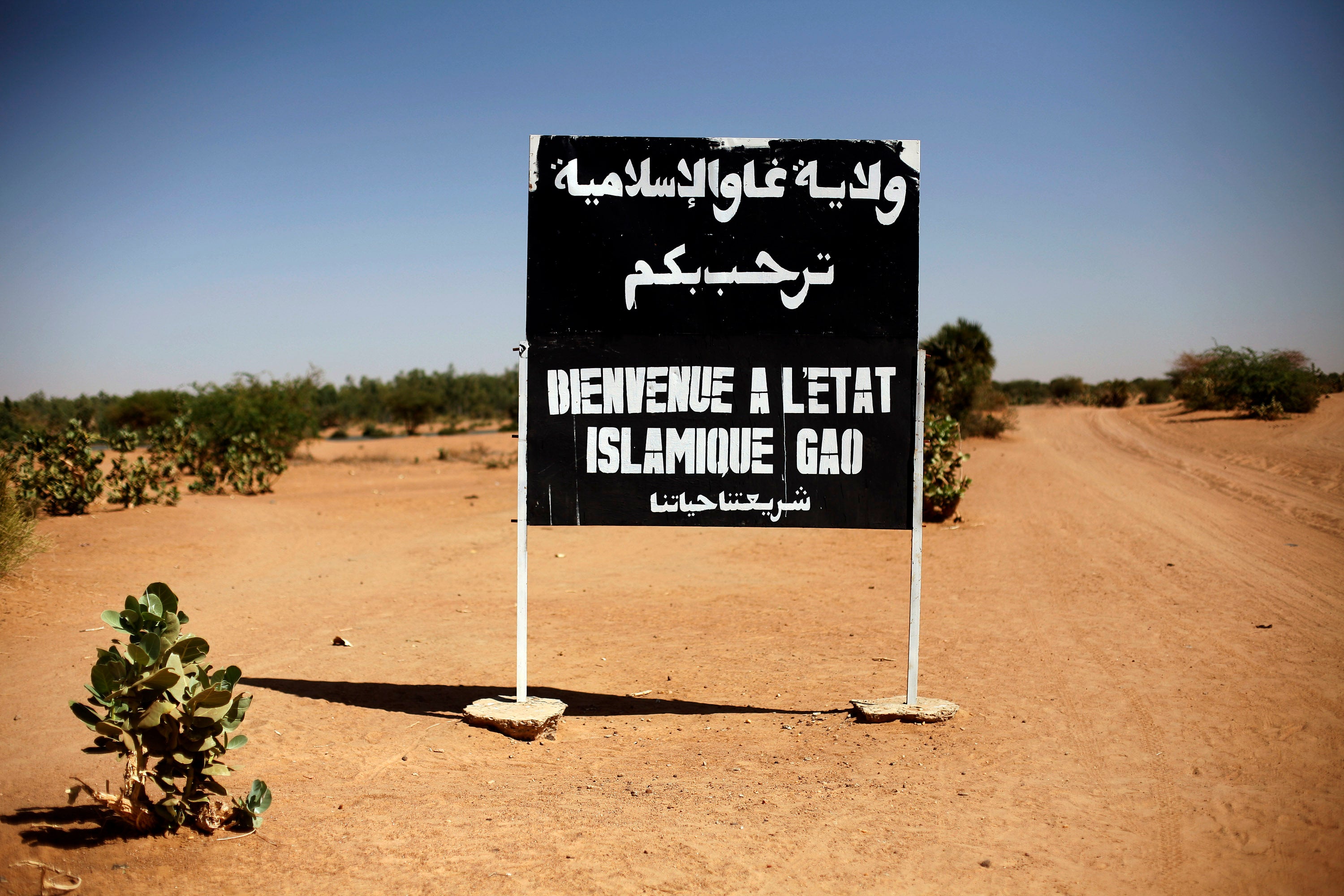UN experts say Islamic State group almost doubled the territory they control in Mali in under a year
Islamic State extremists have almost doubled the territory they control in Mali in less than a year, and their al-Qaida-linked rivals are also capitalizing on the deadlock and perceived weakness of armed groups that signed a 2015 peace agreement

Your support helps us to tell the story
From reproductive rights to climate change to Big Tech, The Independent is on the ground when the story is developing. Whether it's investigating the financials of Elon Musk's pro-Trump PAC or producing our latest documentary, 'The A Word', which shines a light on the American women fighting for reproductive rights, we know how important it is to parse out the facts from the messaging.
At such a critical moment in US history, we need reporters on the ground. Your donation allows us to keep sending journalists to speak to both sides of the story.
The Independent is trusted by Americans across the entire political spectrum. And unlike many other quality news outlets, we choose not to lock Americans out of our reporting and analysis with paywalls. We believe quality journalism should be available to everyone, paid for by those who can afford it.
Your support makes all the difference.Islamic State extremists have almost doubled the territory they control in Mali in less than a year, and their al-Qaida-linked rivals are capitalizing on the deadlock and perceived weakness of armed groups that signed a 2015 peace agreement, United Nations experts said in a new report.
The stalled implementation of the peace deal and sustained attacks on communities have offered the IS group and al-Qaida affiliates a chance “to re-enact the 2012 scenario,” they said.
That’s when a military coup took place in March and rebels in the north formed an Islamic state two months later. The extremist rebels were forced from power in the north with the help of a French-led military operation, but they moved from the arid north to more populated central Mali in 2015 and remain active.
The panel of experts said in the report that the impasse in implementing the agreement — especially the disarmament, demobilization and reintegration of combatants into society — is empowering al-Qaida-linked Jama’a Nusrat ul-Islam wa al-Muslimin known as JNIM to vie for leadership in northern Mali.
Sustained violence and attacks mostly by IS fighters in the Greater Sahara have also made the signatories to the peace deal “appear to be weak and unreliable security providers” for communities targeted by the extremists, the experts said.
JNIM is taking advantage of this weakening “and is now positioning itself as the sole actor capable of protecting populations against Islamic State in the Greater Sahara," they said.
The panel added that Mali’s military rulers are watching the confrontation between the IS group and al-Qaida affiliates from a distance.
The experts cited some sources as saying the government believes that over time the confrontation in the north will benefit Malian authorities, but other sources believe time favors the terrorists “whose military capacities and community penetration grow each day.”
In June, Mali's junta ordered the U.N. peacekeeping force and its 15,000 international troops to leave after a decade of working on stemming the jihadi insurgency The Security Council terminated the mission’s mandate on June 30.
The panel said the armed groups that signed the 2015 agreement expressed concern that the peace deal could potentially fall apart without U.N. mediation, “thereby exposing the northern regions to the risk of another uprising.”
The U.N. force, or MINUSMA, “played a crucial role” in facilitating talks between the parties, monitoring and reporting on the implementation of the agreement, and investigating alleged violations, the panel said.
The 104-page report painted a grim picture of other turmoil and abuses in the country.
The panel said terrorist groups, armed groups that signed the 2015 agreement, and transnational organized crime rings are competing for control over trade and trafficking routes transiting through the northern regions of Gao and Kidal.
“Mali remains a hotspot for drug trafficking in West Africa and between coastal countries in the Gulf of Guinea and North Africa, in both directions,” the experts said, adding that many of the main drug dealers are reported to be based in the capital Bamako.
The panel said it remains particularly concerned with persistent conflict-related sexual violence in the eastern Menaka and central Mopti regions, “especially those involving the foreign security partners of the Malian Armed Force” – the Wagner Group.
“The panel believes that violence against women, and other forms of grave abuses of human rights and international humanitarian law are being used, specifically by the foreign security partners, to spread terror among populations,” the report said.